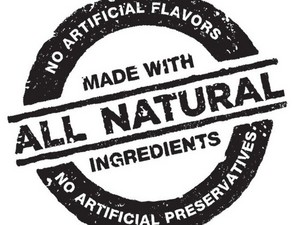 Everyone deserves to be in a satisfying and healthy relationship. But, how do you know if your relationship is a healthy one? How do you know if you are in a relationship that is worth pursuing? What are the differences between a healthy and an unhealthy relationship?
Everyone deserves to be in a satisfying and healthy relationship. But, how do you know if your relationship is a healthy one? How do you know if you are in a relationship that is worth pursuing? What are the differences between a healthy and an unhealthy relationship?
First let’s take a look at what a healthy relationship looks like. This is what you want and deserve!
- You should give and get respect in a healthy relationship. You do not have to agree on everything, but you should show your partner respect for their opinions and decisions. You should feel accepted and loved for who you are.
- There should be a level of trust between partners. We need to feel secure in our relationship so we can feel vulnerable in order to really share our thoughts and feelings. Along with this is the need for honesty in our relationship.
- We should feel that our relationship is a priority. That doesn’t mean that the relationship is your only priority. That isn’t realistic. However, to feel loved and secure, you need to feel like you and your partner are a team and that the relationship is a top priority for both of you.
- Open communication is essential to a healthy relationship. You need to be able to work out problems and negotiate on issues that come up. Unresolved issues eventually deteriorate a relationship.
- A healthy relationship includes a close bond and friendship. You enjoy spending time together and share some common interests. You enjoy each other’s company and look forward to spending time together.
- You have your own life and interests separate from your partner. You are not asking them to meet all of your needs and spend all of their free time with you.
- There is love and passion in your relationship!
Now that we have painted a picture of what a healthy relationship looks like, let’s talk about what an unhealthy one looks like. This kind of relationship does not have what it takes to become what I call an Unstoppable Relationship that will stand the test of time. This is not the relationship you have always dreamed of or deserve. Sometimes when people are in this type of relationship they stay hoping it will get better because maybe there is some good in the relationship, but it is not a healthy one.
- There is control or manipulation in order to get your needs met or to try to control the other person in some way.
- There is a lack of trust in the other person. If you feel the need to check up on your partner or do not feel they can have their privacy, then it is not a healthy relationship.
- If your partner makes you feel bad about yourself or is not supportive of you, then it is not a healthy relationship. The other person should not be critical or condescending. Your partner should be in your corner and should be your support system.
- If you feel afraid of your partner at all, then it is not a good relationship and not one you should remain in.
- If you do not make time for each other or make the relationship a priority, then it is not healthy. It is important to want to be with the other person and enjoy their company.
- Your partner should not discourage you from your own interests and activities. They should support you and want you to have your own friends and interests in addition to the things you share together.
- An unhealthy relationship may lack passion. You no longer find your partner physically attractive. Maybe the lack of communication and the inability to resolve conflicts has turned your focus to the negative, which can drain the passion and intimacy from the relationship.
If you are in the beginning stages of your relationship, it is important to evaluate often. Take a look at anything that is considered unhealthy and decide if it is something that can be corrected. If not, it may be time to walk away. For established relationships, remember that you and your partner must make time for each other. If your relationship is in a rut, consider communicating about how to make each other a priority and rekindle what brought you together in the first place. If you need help, remember that counselors are available to help get your relationship back to a happy, healthy place!
Lori Ann Davis, MA, CRS
Certified Relationship Specialist
